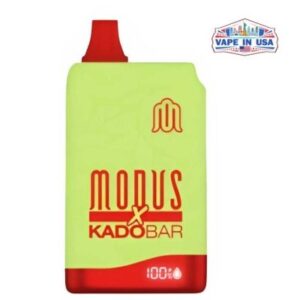In recent years, man made diamonds have gained significant popularity for their affordability, ethical sourcing, and quality. As more people look for sustainable and responsible choices, the demand for the best man made diamonds has grown across the globe. These diamonds offer the same brilliance and durability as natural diamonds but come without the environmental and ethical concerns associated with traditional mining.
This blog will guide you through what makes man made diamonds a smart purchase, how they compare to natural ones, and what to look for when searching for the best quality.
What Are Man Made Diamonds?
Man made diamonds, also known as lab grown or synthetic diamonds, are created in controlled laboratory environments using advanced technologies. These diamonds are not imitation stones; they are real diamonds with the same chemical and physical properties as natural diamonds formed deep within the earth.
There are two primary methods used to produce man made diamonds:
-
High Pressure High Temperature (HPHT)
-
Chemical Vapor Deposition (CVD)
Both processes simulate the natural conditions that lead to diamond formation, resulting in stones that are visually and structurally identical to their natural counterparts.
Why Choose Man Made Diamonds?
There are several compelling reasons why buyers are choosing the best man made diamonds over mined ones:
1. Ethical Sourcing
Man made diamonds are free from conflict and do not involve exploitative labor practices, making them a more ethical option.
2. Eco-Friendly
Traditional diamond mining is known for its environmental damage. Man made diamonds require significantly less land, water, and energy, and leave a smaller carbon footprint.
3. More Affordable
You can often purchase a larger or higher-quality man made diamond for the same price as a smaller natural diamond, offering greater value for your money.
How to Identify the Best Man Made Diamonds
When shopping for the best man made diamonds, there are a few key factors you should consider:
1. Certification
Always look for diamonds certified by recognized organizations such as:
-
IGI (International Gemological Institute)
-
GIA (Gemological Institute of America)
These certifications ensure that the diamond meets strict quality standards.
2. The 4Cs
Just like natural diamonds, man made diamonds are graded based on the 4Cs:
-
Cut – Impacts sparkle and brilliance.
-
Clarity – Measures internal flaws or inclusions.
-
Color – Indicates how colorless the diamond is.
-
Carat – Refers to the weight of the diamond.
Assessing these characteristics will help you choose the best quality stone for your needs.
3. Trusted Retailers
Choose a reputable jeweler with transparent policies, detailed product descriptions, and excellent customer reviews. Whether buying online or in-store, ensure the seller specializes in lab grown diamonds.
Top Uses for Man Made Diamonds
Man made diamonds are suitable for a wide variety of jewelry types. Popular choices include:
Engagement Rings
Many couples opt for man made diamonds for engagement rings to reflect modern values and smart budgeting.
Wedding Bands
Matching lab grown diamond bands for couples are increasingly in demand.
Earrings, Necklaces, and Bracelets
Everyday wear and special occasion jewelry pieces often feature man made diamonds for a balance of elegance and cost-efficiency.
Myths About Man Made Diamonds
Despite their rising popularity, some misconceptions still exist. Let’s clarify a few:
-
Myth: They’re fake.
Reality: Man made diamonds are real diamonds, not simulants like cubic zirconia or moissanite. -
Myth: They’re lower quality.
Reality: Lab grown diamonds can have higher purity and fewer inclusions than some natural diamonds. -
Myth: They don’t hold value.
Reality: While resale value may differ from natural stones, man made diamonds provide strong value upfront due to affordability.
Where to Buy the Best Man Made Diamonds
You can find high-quality man made diamonds through both physical stores and trusted online platforms. Look for vendors that:
-
Offer certified stones
-
Provide customization options
-
Have positive customer reviews
-
Offer fair return policies
Some well-known retailers specialize in lab grown diamonds exclusively and are known for competitive pricing and excellent service.
Comparison: Man Made vs. Natural Diamonds
Understanding how man made diamonds compare to natural diamonds can help you make an informed decision.
Visual Appearance
There is no visible difference between man made and natural diamonds. Only trained professionals using specialized equipment can tell them apart.
Durability and Hardness
Both types score 10 on the Mohs scale, making them equally durable and suitable for daily wear.
Availability and Customization
Man made diamonds offer more variety in sizes, shapes, and cuts, as their creation can be controlled and tailored. This flexibility allows customers to choose diamonds that align with their design vision and budget.
Environmental and Social Impact
Mining diamonds can displace earth, pollute water, and use enormous energy. In contrast, lab grown diamonds are made in controlled labs with fewer environmental consequences and no human rights violations attached to their production.
Conclusion
Choosing the best man made diamonds is about making a smart, conscious, and beautiful choice. Whether you’re looking for an engagement ring, a gift, or a personal statement piece, lab grown diamonds offer all the elegance of natural diamonds without the ethical and environmental concerns.
FAQs
1. Are man made diamonds real?
Yes, they are physically and chemically identical to natural diamonds.
2. Are man made diamonds cheaper than natural ones?
Yes, they typically cost 20–40% less than mined diamonds of the same quality.
3. Can man made diamonds be certified?
Absolutely. Reputable labs like GIA and IGI provide certifications for lab grown diamonds.
4. Do they look different from natural diamonds?
No. To the naked eye, man made and natural diamonds look the same.
5. Where can I find the best man made diamonds?
Look for trusted jewelers, both online and offline, who specialize in lab grown diamonds and provide certification.



